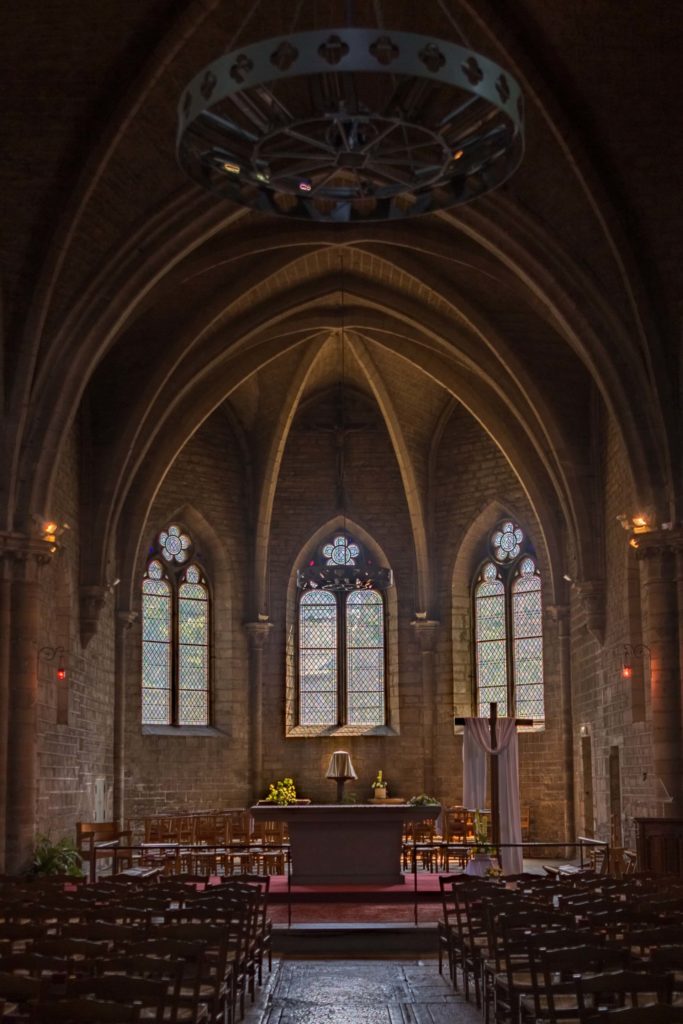Romans 8:9-13 is all about the change that takes place in the believer’s life when he is born again. Although the words “born again” are not found in these verses, the truth of the new birth is clearly evident. Here, we will discover five dramatic changes that take place in the believer’s life at the moment of salvation. These are all indicative statements of fact. All five take place in every believer’s life when they are born again.
This is not the first time Paul has spoken of the new birth in the book of Romans. In Romans 2:28-29, the apostle addressed the true circumcision by the Spirit. In this circumcision, the Spirit of God pierces the heart and opens it up, just as in physical circumcision. The physical cutting of the male organ symbolized being set apart unto God. The true circumcision, which is spiritual, is what took place in our life when we were born again. The Spirit of God took the word of God and pierced our heart, setting us apart unto God and imparting eternal life to us. In Romans 8:9-13, Paul is more descriptive and definitive about exactly what took place in the new birth.
In justification, we were given a new standing before God as we were declared the righteousness of God in Christ. But that did not change our daily life—it transformed our identity and standing before God. However regeneration, enacted by the new birth, affects the way we live our life and who we are on the inside.
In Romans 8:9-13, we will see five distinct changes that took place the very moment you were birthed into the kingdom of God.
I. A New Position (8:9)
First, the believer is given a new position. Verses 5-8 were all about the contrast between the life of the unbeliever and the believer. As unbelievers, we walked according to the flesh (verse 5), set our minds on the flesh (verse 6), were hostile toward God (verse 7), and could not please God (verse 8). But in verse 9, we see a distinct contrast.
Paul writes, “However, you are not in the flesh but in the Spirit” (verse 9). “You” refers to all believers. If you are born again, you are not in the flesh. Note that Paul writes in the present tense, “you are not in the flesh.” To be “in the flesh” means to be living in the realm of the flesh, under the control of the flesh. Rather, believers are “in the Spirit.” This happened at the moment of our rebirth.
“In the Spirit”
To be “in the Spirit” means you are living in a whole new realm. It is like a fish who lived in the water, but suddenly becomes a bird who now lives in the air. To be “in the Spirit” means we are now living under the control, guidance, and direction of the Holy Spirit. There are only two realms that a person can be in. You are either in the flesh or in the Spirit. If you are an unbeliever, you are in the flesh. If you are a believer, you are in the Spirit. You cannot be half in the flesh and half in the Spirit. These are two distinct categories that are polar opposites and do not overlap at all. When we were born into this world, we were born in the realm of the flesh. When we are born again, we are transferred into the realm of the Spirit.
We once were living in the world, going according to the sinful course of this world. That was our environment. But God sovereignly reached down and picked us up, changing who we are such that we now live in a totally new environment. We are still in the world, but we are not of the world any longer. We are in the Spirit. We have a totally new position. This is a matter of fact. It does not have any conditions. If you are a Christian, you are once and for all, now and forever, living in the realm of the Spirit. You have been placed into a new kingdom.
II. A New Possession (8:9)
Second, you have a new possession. Paul writes, “If indeed the Spirit of God dwells in you” (verse 9). Not only are we now in the Spirit, but the Spirit is in us. This is a mutual indwelling. We now are living in the realm of the Spirit, and the Spirit is living within us. “If” could be translated as “Since.” Paul has already established that this is true. “Dwells” means to make one’s home in, to live in as a place of residence, to occupy. The Spirit of God has now moved into us and will never leave us. He has moved in to take over as the new dominant influence and force in our lives. He is the internal resident within us.
In the Upper Room discourse, Jesus belabored this point. He was about to leave His disciples in order to be crucified and ascend to the Father, and they feared being left on their own. In order to comfort them, He assures them that He will send the Holy Spirit, who will come to live inside of them in His absence. Beginning in John 14:16-17, Jesus says, “I will ask the Father, and He will give you another Helper, that He may be with you forever; that is the Spirit of truth, whom the world cannot receive, because it does not see Him or know Him, but you know Him because He abides with you and will be in you.” The Spirit is going to move in and take over your life. He will give you everything that you need to live the Christian life. It is impossible to live the Christian life on your own. The Spirit of God empowers you in this endeavor.
Jesus continues, “In that day you will know that I am in My Father, and you in Me, and I in you” (verse 20). Here is the mutual indwelling. “We will come to him and make Our abode with him” (verse 23). For the rest of our lives, no matter where we go, we are never alone. The Holy Spirit within me will be all-sufficient to supply the strength and resources that I need for every demand upon my life within the will of God. Jesus puts it this way: “Abide in Me and I in you” (John 15:4). There is again the idea of a mutual indwelling.
The apostle Paul writes, “Because you are sons, God has sent forth the Spirit of His Son into our hearts, crying, ‘Abba! Father!’” (Galatians 4:6). We are “sons” because we are born again into the family of God. When we were birthed into the family of God, the Spirit of God came into our heart. “Abba” is a term of intimacy such as “Daddy” or “Papa.” This term makes God real and intimate in our hearts.
Paul writes, “Or do you not know that your body is a temple of the Holy Spirit who is in you” (1 Corinthians 6:19). This reality took place the moment you were born again. It is not a second work of grace that happens five years down the road, once you hit a new point of discovery in the Christian life. It is a matter of fact that your body has become a temple for the Holy Spirit. He moved in and He will never move out. He is actively involved in your sanctification. The whole New Testament speaks with one voice on this fact. Paul says to Timothy, “Guard, through the Holy Spirit who dwells in us, the treasure which has been entrusted to you” (2 Timothy 1:14). It is abundantly clear that if you have been born again, the Spirit of God dwells in you.
Let us look back at Romans 8 at the reality of the Spirit of God within us and His multifaceted ministry in our life. The Spirit of God has set us free from the law of sin and death (Romans 8:2). The Spirit of God has set our mind on the things of the Spirit (Romans 8:5-6). It is the Spirit of God who is leading us away from sin and into godliness (Romans 8:14). The Spirit of God is testifying with our Spirit that we are children of God (verse 16). This means the Holy Spirit is bringing the assurance of salvation to our hearts. The Spirit of God that called, convicted, and regenerated us is the same Spirit who now assures us that we are saved. It is the Spirit of God who helps us in our weakness (verse 26). When we are weak in living the Christian life, the Spirit empowers, sustains, and prays for us. He did not simply move into our life to take away from us, but has come in order to be giving to us that which we need to live the Christian life. He has come in to take over. This took place in the new birth. It has already happened, we simply need to realize it.
Romans 8:9 concludes, “But if anyone does not have the Spirit of Christ, he does not belong to Him.” This is crystal clear. If the Spirit of God does not dwell inside of you, then you are unregenerate. This is intended to affirm to the believers in Rome that they do have the Spirit of God. He is actively at work in their life producing Christ-likeness and leading them into personal godliness. The moment you begin to be lured back into the world, the Spirit of God is there to convict you, cause you to confess and repent, and bring you back onto the path of Christ-likeness.
III. A New Power (8:10)
Third, there is a new power. “If Christ is in you, though the body is dead because of sin, yet the spirit is alive because of righteousness” (Romans 8:10). Please note how interchangeably the Holy Spirit and Christ are used. In the previous verse, Paul said the Holy Spirit is in us. Now, he says that Christ is in us. Christ is in us by His Spirit. To have the Spirit is to have all of Christ within us. In reality, Jesus is in a glorified body seated at the right hand of God the Father. Christ indwells us by His Spirit. Admittedly, there is somewhat of a mystery related to this, but it is nevertheless true.
Physical Death
“The body” refers to our physical body. Our physical body has not yet been redeemed. As we live our Christian life, the human spirit within us has been made alive in the new birth. The new birth is the life of God in the soul of man. But the oxymoron is that we have a spirit that has been made alive to God inside of a physical body that is dying. As Christians, we will still die just like unbelievers. We will not escape death, unless the Lord comes during our lifetime. Our outer man is perishing, but our inner man is being renewed day by day. There is a sense in which, on the outside, we are growing older and decaying. But on the inside, we are alive and becoming more and more like Christ. This is the juxtaposition that takes place in the believer.
Our physical bodies are wearing out and dying “because of sin.” Let us remind ourselves the reason there is death in the world is because of sin. Sin is the root, death is the fruit. Paul wrote, “The wages of sin is death” (Romans 6:23). Lust gives birth to sin, and sin brings death (James 1:15). We cave in to lust and sin, and when we sin, the result is death. It will never bring spiritual death to the believer, but there is still a physical death. This trajectory begins the moment we are conceived within our mother’s womb. This is evident by the fact that there are miscarriages and death even in the womb. At the moment of conception, Adam’s sin nature is passed down into the embryo of the baby that is formed in the womb. There is death in that body that has been passed down from Adam. Adam’s sin has been imputed. David declares, “In sin did my mother conceive me” (Psalm 51:5). In a sense, from the moment we are conceived, death is at work. Sin was already in the fabric of our physical body.
Spiritual Life
“Yet the Spirit is alive because of righteousness.” Some translations use a capital “S” for Spirit in this verse, but others use a lowercase “s” meaning the human spirit. It is a translator’s decision that could go either way in this instance. In the new birth, our spirit was made alive. You were spiritually dead in your trespasses and sins, and God acted upon your spiritually dead soul so that there was a spiritual resurrection and you were made alive in your spirit. That is true, and it is also true that the Holy Spirit is life. Our spirit was made alive by the Holy Spirit who is life. Either way you translate it, it is saying the same thing. We were made alive by the Holy Spirit in our human spirit.
Jesus is the One who accomplished, achieved, and secured righteousness for us. Because Jesus was successful in His mission of salvation, the Spirit of God can now work to make us alive and apply the salvation that Jesus accomplished. We are made alive in our spirit by the Holy Spirit, therefore, we have a new power to live the Christian life that we never had before. We are now alive unto God, the truth of Scripture, and the kingdom of God.
IV. A New Prospect (8:11)
Fourth, we have a new prospect, which means a new future. “But if the Spirit of Him who raised Jesus from the dead dwells in you, He who raised Christ Jesus from the dead will also give life to your mortal bodies through His Spirit who dwells in you” (verse 11). “Him” refers to God the Father. We established in verse 9 that the Spirit of God dwells in the believer. Notice He is the Spirit of God the Father in verse 11 and the Spirit of Christ in verse 9. It is interesting how interchangeable each person of the Trinity is. It is not modalism, which means just one person. There are three Persons within the Trinity. These verses point us to the reality of the Trinity.
“Give life to your mortal bodies” refers to the resurrection at the end of the age when our physical body will be resurrected. Paul will talk more about this at the end of verse 23. Our spirit has been redeemed on the inside by regeneration, and at the end of the age, there will be the redemption of our body. Our total person will be redeemed, both spirit and body. This will be brought about “through His Spirit who dwells in you.” Paul obviously wants us to know that the Spirit of God dwells in us.
Notice the personal pronoun “who.” It is not a “what,” but a “who.” The Holy Spirit is not an “it,” but a “who.” The Holy Spirit is a “He,” meaning He is a person just as God the Father and Jesus Christ are persons. Never refer to the Holy Spirit as an “it” or a “what.” He is a “He” because He has all of the distinctive marks of personhood. The Spirit of God has a mind, emotions, and a will. Just like God the Son and God the Father. You can grieve the Holy Spirit. The Spirit of God has a sovereign will. He searches the things of God. The Spirit has a mind: “He who searches the hearts knows what the mind of the Spirit is” (Romans 8:27). When Paul refers to the Spirit in verse 11, he refers to Him as a “who.”
The Spirit of God indwells us and will never leave us. Even when we go to heaven at the end of the age, the Spirit of God will resurrect our body and reunite it with our soul and spirit, suddenly transforming our body into a resurrected, glorified body. The Spirit’s ministry will continue even after we go to heaven. He is the One who will resurrect our body even when our body is laid in the grave. The Spirit of God will raise our body.
V. A New Pursuit (8:12-13)
Lastly, there will be a new pursuit of personal holiness. Paul writes, “So then, brethren, we are under obligation, not to the flesh, to live according to the flesh—for if you are living according to the flesh, you must die; but if by the Spirit you are putting to death the deeds of the body, you will live” (verses 12-13). “So then” is a conclusion that is drawn based on what was just stated. Paul declares that we are not under obligation to the flesh. We have moved out of that realm. We are no longer duty-bound to our old master of sin. We are no longer slaves to the flesh.
“You must die” refers to eternal death, not physical death. This refers to an unbeliever. No believer will live according to the desires of their flesh as the main emphasis of their Christian life. They are not in the flesh, but in the Spirit. This is not teaching moral perfectionism, nor is it saying that we do not sin anymore. But we are no longer living in that realm. We have a new citizenship in a different kingdom. Therefore, we no longer live according to our flesh, but according to the Spirit. We will still stumble and fall, but it is not the main characteristic of our life.
“You will live” refers to living eternally in the presence of God. This is a statement of fact that believers are being led by the Spirit to put to death the deeds of the body. “The body” refers to our unredeemed humanity, the unredeemed body of sin in which we live with its fleshly appetites. The Spirit of God leads the believer to put to death the deeds of the flesh. The Spirit of God does not lead us to play with sin, or simply to slap its hand. Rather, the Spirit of God is leading us to deal ruthlessly with our sin. We are to mortify our flesh, to crucify the deeds of the flesh. The weeds keep trying to grow back, but we must continue to pluck them from our life.
The Spirit of God is the active Agent in our life that directs us to deal with these sins. He will not allow us to continue in sin. We must continue to put to death the deeds of the flesh as long as we live in this fleshly body here on the earth. Our perishing body still has fleshly appetites. We never escape the conflict, but we must make progress. The Spirit of God ensures that we do make progress. If we decide not to deal with our sin, the Spirit of God will continue to convict us, as well as bring discipline into our lives. Eventually, there is sin that leads to death. There is a reality that God does take some home to heaven because they refuse to crucify their sin and turn away from the sin in their life.
But the point is that we have been birthed into the kingdom of heaven, and therefore, we have a new pursuit towards holiness. There are no conditions for us to meet to be granted this new pursuit. It is a matter of fact when we are born again. It is something that has already taken place in the life of the believer. We now have this new pursuit and will be enabled by the Holy Spirit to strive towards righteousness.
Conclusion
In conclusion, remember that each of these characteristics is an accomplished reality for the believer. Knowing this truth results in four outcomes for us today. First, recognition. You must recognize that if you are a believer, these are real life actual facts that have happened in your life. This has already happened in your life.
Second, examination. You must examine yourself to see if this has happened in your life. It is one thing to go to church and be religious. It is something else entirely for you to be transferred from the realm of the flesh to the realm of the Spirit. The Spirit of God takes over your life and leads you to put to death the deeds of the flesh. Do you see this taking place in your life?
Third, confirmation. As you see these things taking place in your life, it should be confirmation to you that you are no longer in the flesh, but in the Spirit. This should be affirmation in a positive way. It is part of the assurance of salvation. God is at work in the believer both to will and to work for His good pleasure. Before this took place, I was going with the flow of the world, insensitive to the things of God. But now that I have been made alive to the Spirit and have a heightened sensitivity to the things of God, this should be a great encouragement to me. God is at work in my life. How can you know that you are saved? You see that this has taken place in your life.
Fourth, mortification. We bear human responsibility to work in partnership with the Spirit of God to be putting to death the deeds of the flesh. Paul states in the imperative that we must be “putting to death the deeds of the body” (Romans 8:13). It is both the Spirit of God working in us to do this and also us actively working to put to death the deeds of our flesh. We must pluck these weeds out of our life so that we can be made like Christ. Sin is still a part of our lives because we are still in this body of sin. So there is a conflict within us. But praise God that we are not doing this on our own. The Spirit of God within us is far more powerful than any sin in our life. He is omnipotent, which means He has all power. Whatever temptation we might be wrestling with, the Spirit of God is more than powerful to help us overcome the temptations.






